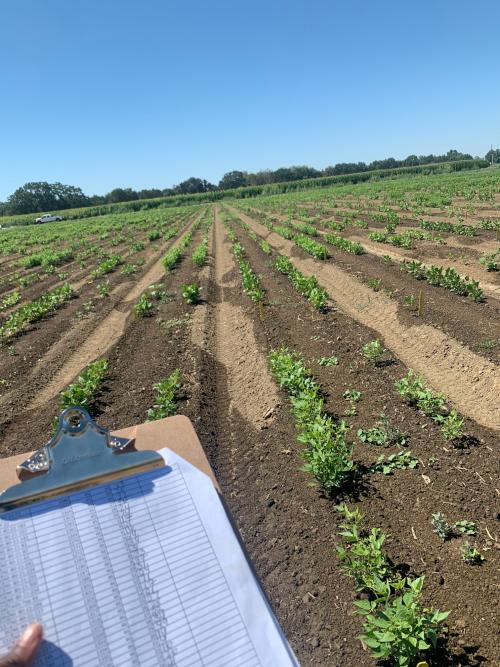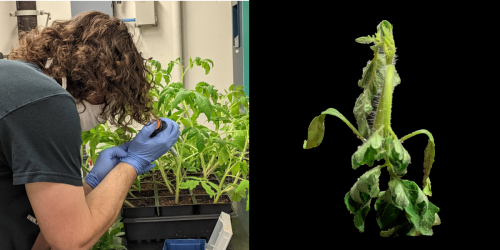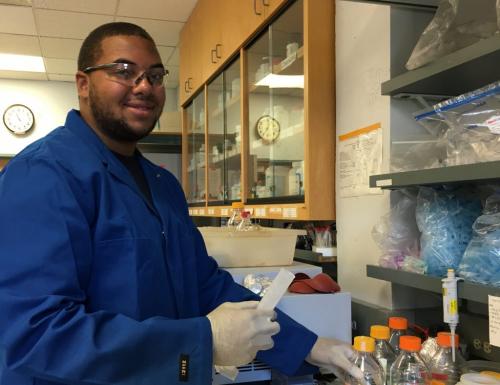
Summer research lies at the heart of the PABGAP program.
From mid-June to mid-August, PABGAP scholars can expect to work side-by-side with UC Davis faculty and graduate students in original field and laboratory research, gaining new skills and intellectual independence along the way.
PABGAP scholars will work with UC Davis faculty members from the College of Biological Sciences, the College of Agriculture and Environmental Sciences, and the College of Engineering. Potential research topics span the breadth of plant agricultural biology, including questions in...
- biochemistry
- cell biology
- genetics and genomics
- interactions between plants and their pathogens
- population and community ecology of plants
- morphology
- biotechnology
- post-harvest processing of fruit and vegetable crops
- climate change effects on crops and plant communities
- and more!
Plants and study systems under investigation by PABGAP faculty include crop plants essential for feeding the world in the 21st century, the plant-soil-root microbiome, invasive weeds, perennials and annuals from natural systems, plant secondary metabolites, and grapes used for winemaking, as well as model organisms such as Arabidopsis.

Students who participate in the PABGAP program will begin by preparing for research during the academic year via monthly videoconferences with their designated faculty mentors. Mentors and students will read and discuss the appropriate literature, consider possible areas of focus for summer research, and connect research preparation to the student’s coursework.
In addition to conducting research in the field and at the laboratory bench, PABGAP scholars can expect to participate in lab meetings and interface with their mentors in discussions about science, research, and the role of scientists in society.
At the end of the 8-week PABGAP program, scholars present their work in a vibrant poster session that includes students from several UC Davis summer research programs. And we encourage scholars to share this work at scientific meetings held during the ensuing academic year.

How to learn more about PABGAP research
For information on the breadth of research available to PABGAP scholars, please visit our faculty page for brief profiles and then consult the web pages of individual faculty for more detailed information.
